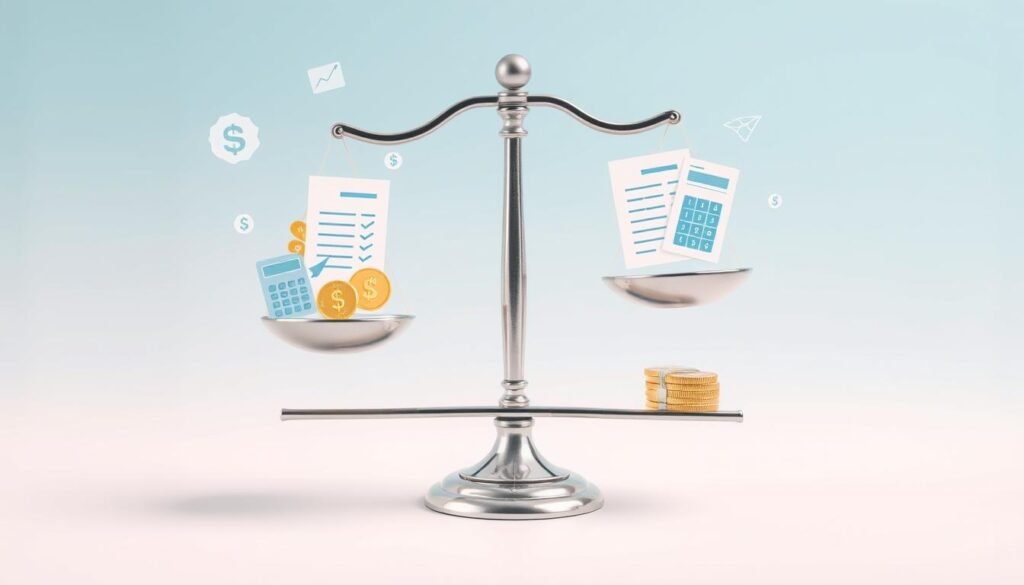If you are seeking solutions about debt relief options then finding a way out of debt appears to be impossible. A debt consolidation loan looks like a ray of hope. You can attain financial balance by reviewing what these loan combination companies need to offer you.
It will consolidate all your debts into a single simple payment. It may also provide a lower interest rate and make it easier for you to pay off your debt.

Understanding Debt Consolidation Loans
After all, debt consolidation loans do aid in combining debt. They allowed consumers to consolidate multiple debts into one loan. It becomes easier to pay back these loans and they usually have lower rates of interest which assists a person in need.
What Are Consolidation Loans for Debt?
Debt consolidation loans are traditional loans that allow you to combine various debts into a single debt. That means you are able to eliminate multiple credit cards, loans, etc., with a single payment. These loans often carry lower interest rates than credit cards and can save you money over time.
How Does Consolidation Help You Manage Debt?
The debt of choices is the sort of decision that can go a long ways towards being able to control your overall obligation. It makes payments just one monthly payment. In addition, qualifying for lower interest rates save you money allowing you to pay of your debt faster and with less agony.
Factors to Consider When Choosing a Debt Consolidation Loan
There are a few key elements to consider when choosing a debt consolidation loan. This includes attractive rates, loan terms, and trustworthiness of the lender! All of these elements have a significant impact on the worth & price of the loan.
Evaluating Interest Rates
To set competitive rates is key. That is because rates directly affect what you will pay when it comes time to pay back. Last but not least, shop around amongst various lenders for the best rates. With a lower rate, you pay less each month and pay less in interest overall.

Term Lengths and Their Impact
Loan terms range and it is imperative to choose the correct one. While it brings higher monthly payments, shorter terms mean less interest paid. Longer terms = lower payment but more interest An option that works well with your budget/financial goals.
Lender Reputation / Customer Reviews
Being a lender known for penetration capabilities should also be weighed. Find the lenders that have good customer service practices. Look at customer reviews and ratings online. Opt for a lender that is not transparent and honest with you during the loan term.
There is a lot to consider before selecting the correct debt consolidation loan. Compare rates, terms (e.g. 15 or 30-year fixed-rate), and pay attention to the trustworthiness of the lender. This will allow you to create something that reflects what meets your money priorities and vision.
Best Debt Consolidation Loans: Top Lenders
So, naturally, the first you need to consider when talking about debt consolidation is choosing the right creditor. Below, we’ll take a look at some of the top-rated lenders that offer competitive loans. They each offer different ranges of APR and terms for the loan. This, in turn, can allow new borrowers to pay down their debts better. Now, let’s look at some of the key players:
| Lender | APR Range | Loan Amount | Noteworthy Features |
| SoFi | 5.99% – 18.85% | $5,000 – $100,000 | No origination fees and prepayment penalties |
| LightStream | 3.99% – 19.99% | $5,000 – $100,000 | Rate Beat program and Loan Experience Guarantee |
| Marcus by Goldman Sachs | 6.99% – 19.99% | $3,500 – $40,000 | No fees and flexible payment terms |
Comparable:
SoFi: Free extra fees target to larger.
LightStream: Great if you’re comfortable searching for a lower rate with our guarantee that we can beat it.
Marcus by Goldman Sachs: Good for simple loan terms and clear pricing with no hidden costs.
Consider rates, loan amounts and perks when choosing a lender These details can help secure your debt consolidation loan but can also make or break it.
Applying for Debt Consolidation Loans
The first step behind starting your journey to receive a debt consolidation loan is knowing where to start. You have to prepare your documents and has to see the credit history as well. That helps fulfill the need of the lender.
Gathering Necessary Documents
Assemble all of the relevant paperwork. Here’s what you should have:
Income verification: Requests for pay stubs, tax returns, or statements from an employer.
Debt disclosures: The current balances and interest rates on loans and credit cards you already have.
Identity documents: A government-issued ID like a driver’s license or passport.
If you can prepare these documents, your loan application will be easier.
Credit Score Requirements Explained
Lenders search for your credit score to check if you are a reliable borrower. Your loan terms will improve with a higher score. Here’s what you need to know:

| Credit Score Range | Typical Loan Terms | Expected Approval Odds |
| 750 and above | Lowest interest rates | High |
| 700-749 | Moderate rates | Medium |
| 650-699 | Higher rates | Low to Medium |
| Below 650 | High rates and additional requirements | Low |
What are the Different Types of Debt Consolidation Loans?
One of the most essential things to know about debt consolidation loans are that they come in a couple of varieties. Each type has specific benefits that make it ideal for certain types of finances. They include collateral loans, interest rate options, personal loans and others.
Secured vs. Unsecured Loans
With secured loans, you will be asked to provide some form of collateral. It gives lenders confidence, which translates into lower rates and better terms for you. Unsecured loans, on the other hand, do not require any collateral. More available but typically have higher interest rates because they are risky for lenders.
Loan Types: Fixed-Rate vs. Variable-Rate
Debt consolidation loans varies too when it comes to interest rates. With fixed-rate loans, the interest rate remains unchanged during the life of the loan. In other words, your monthly payments are fixed. Variable-rate loans are different, as their rates may be adjusted based on market conditions. At least if rates go down, you’ll save money but if rates go up, your payments will increase.
Ultimately, the best loan for you is based on your finances and the level of risk you’re willing to accept. Consider the tradeoff between the stability of fixed payments and the potential for savings from variable rates.
Understanding Credit Score Factors in Home Loan Eligibility
So, it is essential first to know how to improve the credit score before you apply for a debt consolidation loan. It is also important to know how consolidation affects your credit report. Following these steps can improve your odds of approval and securing favorable terms if you are approved.
How To Boost Your Credit Score Before You Apply
Make sure you have a high credit score before going to loan. This can result in lower interest rates and better terms at a loan. Pay attention to your debt to credit ratio and make sure you check it from time to time too, score can be improved. This can also help if there are errors.
The Impact of Debt Consolidation on Your Credit
Consolidating debt can help you get your credit score to go down at least in the beginning. That’s opening a new line of credit and closing old lines. But: this effect is generally short-lived.
Over time, if you make your consolidated loan payments on time, it will be reflected in a higher credit score. This is one way to demonstrate your creditworthiness to lenders. It is a good impact on your credit report and score.
| Factor | Impact on Credit Score |
| New Account Opening | Decreased Credit Utilization |
| Closing Old Accounts | Minor Drop |
| On-Time Consolidation Loan Payments | Long-Term Improvement |
| Decreased Credit Utilization | Improvement in Debt to Credit Ratio |
Here’s how to manage your finances after you consolidate your debts: it helps to avoid debt. Good budget: keep this in mind at this time, it will help you manage your loan payment and daily expenses. Develop a post-consolidation schedule. Developing a schedule after consolidating your debt is essential. Remember: Feel free to include your loan payment on your regular income and monthly expenses. Focus on high costs such as homes and meals; money is also important. Using the target application or schedule can already help you. Smart strategies can help keep your hands free from debt. Lack of evidence. Keep at least three to six months of living expenses. Knowing the difference between what you need. Determine if you have a creditor who does not need good credit. Balance improvement: Don’t forget about debt Given the importance of your debt consolidation phase, it is ultimately essential to overlook other important financial aspects, such as accumulating deposits, planning for investment, and more. To make your financial aspect even better, we need a marketing strategy or strategy and planning.